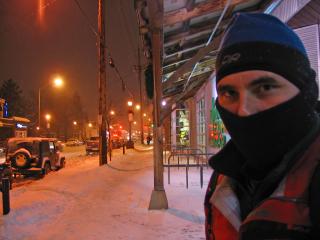Quite a while ago, I wrote about connections between human disease and the factory farming of animals. Recently, some new observational data has supported the link between the two. In the Netherlands, a new form of the superbug MRSA has emerged. It is strongly resistant to treatment with tetracycline antibiotics: a variety heavily used on livestock. The animals need the drugs because they are kept in such appalling conditions (unhygienic and constrained) that they would get infections too easily otherwise.
Xander Huijsdens and Albert de Neeling found that 39% of pigs and 81% of pig farms in the Netherlands were hosts to the potentially lethal antibiotic resistant bacteria. People who came into contact with pigs were 12 times more likely to contract this form of MRSA than members of the ordinary population; those who come into contact with cattle are 20 times more susceptible. The strain has since been found in Denmark, France, and Singapore. A study conducted by the University of Guelph found the strain in 25% of local pigs and 20% of pig farmers.
Maintaining the effectiveness of antibiotics for the treatment of people is highly important for human welfare. Antibiotics are one of the major reasons why modern medicine is valuable: they help people die dramatically less often after childbirth and surgery than was the case before their development. They have also helped to make diseases that would formerly have been probable death sentences treatable. The fact that we are allowing farms to deplete their value so that they can produce meat more cheaply (by forcing more animals closer together in less clean conditions) seems profoundly unwise. In Pennsylvania, legislators have even banned farmers who produce hormone and antibiotic milk from saying so on their packaging – on the grounds that it would make consumers unduly worried about the other milk on offer.



